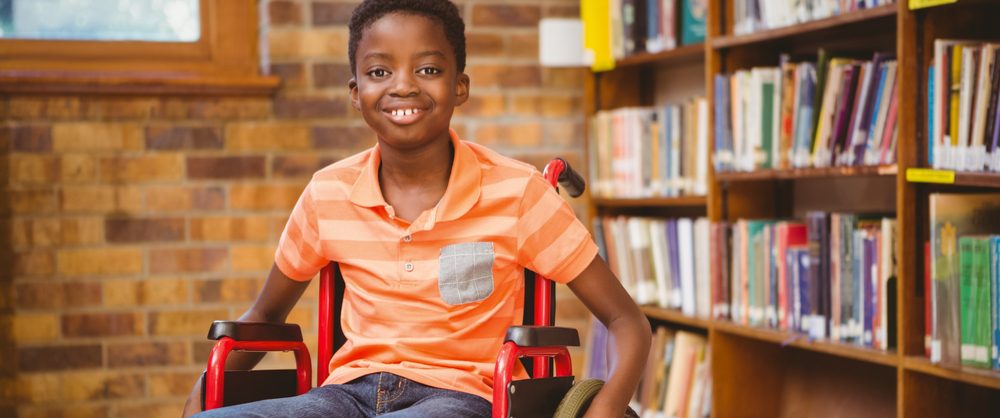Just as the number of students with disabilities enrolled in higher education is on the rise nationally, so too is the number of students with disabilities who are drawn to speech-language pathology or audiology as a major. The legal definition for “person with a disability” is very broad, including students traditionally thought of as disabled (i.e., those who are blind, deaf, or in a wheelchair) as well as those with invisible disabilities (i.e., those with chronic health impairments, learning disabilities, attention deficits, and mental health/psychological disabilities). Are there general rules that can be used to govern interaction with students with disabilities in the classroom and clinic?
In many ways, the answer to that question is “No!” Federal law requires that all students, regardless of disability, be provided with equal access to educational opportunities. What is needed to ensure equal access for students with such varied disabilities will differ significantly from one student to the next. There are, however, some “do’s and don’ts” that may help professionals involved in academic and clinical training to better understand and respond to the need for access and the obligation to accommodate:
- DON’T stereotype students with disabilities as being somehow less capable because they need accommodations. Accommodations are not given to help students with disabilities succeed in settings in which they would otherwise fail. Accommodations are given to ensure that students with disabilities have the same opportunity to demonstrate their knowledge and skills as do other students. Focus on the outcome of the student’s efforts. Be wary of the unconscious tendency to dismiss student performance as being a function only of accommodation, not achievement.
- DON’T group students by disability category and assume that all students with the same label will perform in the same way. A disappointing performance by the last student you encountered who had a learning disability portends nothing at all for the performance of the next student with a learning disability who you meet. On the other hand, the fact that your program graduated a talented student in a wheelchair several years ago does not mean that the new freshman in a wheelchair will do as well. Consider the presence of disability as an overlay to the student’s performance, not as the determining factor.
- DON’T make assumptions about how the student will perform in clinic based on your knowledge of the student’s disability. Instead, draw your conclusions about the student’s capabilities based on your observation of performance in the clinical setting. It is wholly appropriate to use subjective judgment in assessing relative success for the student with a disability, just as you do with every other student. Be careful, though, to make such judgments on the basis of what the student does, not what you expect. The student with a history of posttraumatic stress disorder may turn out to have a wonderful rapport with children. The student with attention-deficit/hyperactivity disorder who copes well in the classroom and is getting top grades may fall apart in the unstructured clinical setting when he or she needs to deviate from the carefully constructed lesson plan in response to unanticipated circumstances.
- DON’T let concerns about the student’s future employment potential color your judgment of the student’s current performance. Federal law expressly prohibits counseling students with disabilities more restrictively (i.e., suggesting that students consider a different major because you question their viability in the job market). Even with the best of intentions, preconceived notions of whether a student with a disability is a “good fit” for the field too often lead to discriminatory treatment as faculty allow their concerns for the student’s future to color their assessment of current performance. Remember that our focus for all students, including those with disabilities, must be on whether they have demonstrated appropriate mastery of the skills we teach and not on how they will apply that experience in the future.
- DO make contact with the disability services provider on your campus to discuss any concerns you have regarding the inclusion of a student with a disability. The disability service provider can readily explain to you the classroom accommodations assigned for a student with a disability. With rare exceptions, the student will be using like accommodations in all classroom settings (i.e., for classes both in and outside the major). Accommodations that can be appropriately made for the student in clinical settings may be different than classroom needs and may be mitigated by circumstances that you understand but that are unforeseen by the service provider. You will need to educate each other to make sure that the disability-related needs are met without interfering with the quality of client care.
- DO talk to the student if you have concerns that are related to disability. Do not assume that such a chat will be necessary (i.e., some students with disabilities have found coping strategies that make their disability a nonissue for the classroom or clinic). However, if difficulties are foreseen or arise, it is appropriate to discuss your concerns directly with the student. Some students with disabilities are easily able to discuss the functional limitations created by the disability and will have ready suggestions as to how they will meet the challenge you have identified. Some students with disabilities are not so aware of how the disability is affecting them and how their performance differs from the norm. Give the student the opportunity (and dignity) to contribute to a meaningful dialogue regarding accommodations and expectations. That does not preclude you from seeking additional input from the disability service provider, but it is an important first step in resolving concerns.
- DO maintain the same high standards and expectations for students with disabilities that you expect of every other student. The existence of a disability may explain why or how a student with a disability performs, but it is not an excuse if that performance falls short of the mark. Equal access to educational opportunity includes equal access to realistic assessment of performance. It would be as inappropriate to give a student with a disability a better-than-earned grade because you know the student did his or her best as it would be to give that student an unfairly low grade because you discounted the student’s success knowing that it was earned with accommodation. Always keep an open mind. Never allow your knowledge of the student’s disability to color your evaluation of performance, either positively or negatively.
Remember, students with disabilities are more like all the other students in your class than they are different. They have the same range of potential, and they have the same educational and professional aspirations. Focus on what they do, not who they are. How do you manage students with disabilities in the classroom and clinic? Strike the words “with disabilities” from that sentence—and you have your answer!










